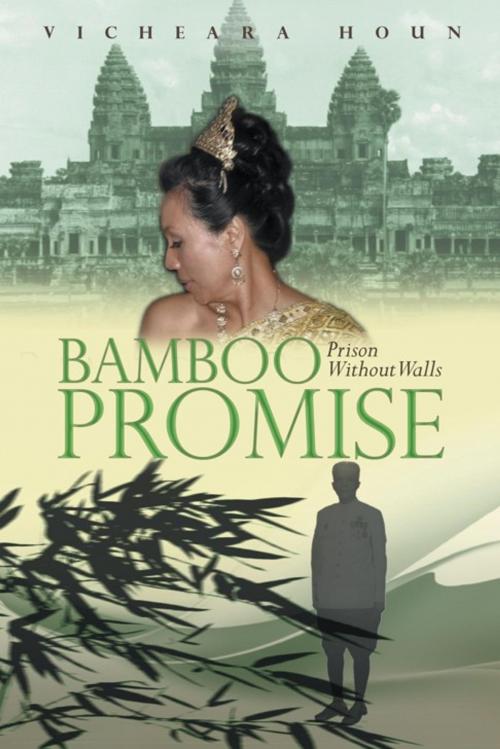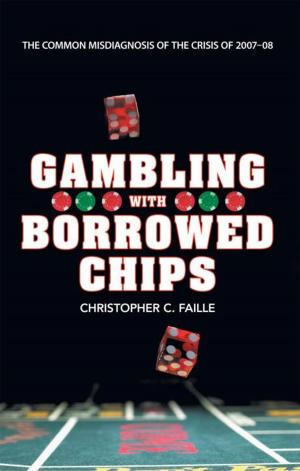| Author: | Vicheara Houn | ISBN: | 9781458202239 |
| Publisher: | Abbott Press | Publication: | March 22, 2012 |
| Imprint: | Abbott Press | Language: | English |
| Author: | Vicheara Houn |
| ISBN: | 9781458202239 |
| Publisher: | Abbott Press |
| Publication: | March 22, 2012 |
| Imprint: | Abbott Press |
| Language: | English |
This is the autobiography of a woman who grew up as the sheltered and privileged only child of a wealthy, prominent Cambodian family. In her young life, she was oblivious of the impoverished lives of the underclass in Cambodia, and of the politics and world events that were sweeping her and her country toward one of the great catastrophes of the 20th century.
The rich Cambodian culture and all the competing Western influences are vividly displayed in her descriptions of her life with her father as he tries to mold her into a highly educated and independent woman who still exemplifies all the virtues of the idealized, traditional Cambodian woman.
The political tides that enveloped Southeast Asia in the 1970s began to become real to Vicheara when her fathers responsibilities in the Lon Nol government caused him to personally negotiate with a group of Khmer Rouge insurgents, including inviting them to a dinner at his home.
On April 17, 1975, Pol Pot - the monstrous leader of the communist guerrilla organization transformed Cambodia, the country of his birth, into a Prison Without Walls. This was one week before the fall of Saigon, Vietnam. This extreme form of radical communism eliminated religion, culture, currency, personal property, hospitals, schools, the banking system, and every other vestige of modern urban life. They committed class genocide against Cambodians educated urban citizens through starvation, execution, and forced labor. Nearly half the population of Cambodia died in the four years that followed, many in the Killing Fields, and as Toul Sleng Prison, the slaughterhouse in Phnom-Penh.
When Vicheara, near death from starvation, staggered out of the Pol Pot Time in 1979, she was alone, an orphan, a stranger in a world forever changed. The Cambodia of her childhood was gone as were most of her family and friends. Her journey through horror, privation and humiliation finally led her to the United States in 1984.
This is the autobiography of a woman who grew up as the sheltered and privileged only child of a wealthy, prominent Cambodian family. In her young life, she was oblivious of the impoverished lives of the underclass in Cambodia, and of the politics and world events that were sweeping her and her country toward one of the great catastrophes of the 20th century.
The rich Cambodian culture and all the competing Western influences are vividly displayed in her descriptions of her life with her father as he tries to mold her into a highly educated and independent woman who still exemplifies all the virtues of the idealized, traditional Cambodian woman.
The political tides that enveloped Southeast Asia in the 1970s began to become real to Vicheara when her fathers responsibilities in the Lon Nol government caused him to personally negotiate with a group of Khmer Rouge insurgents, including inviting them to a dinner at his home.
On April 17, 1975, Pol Pot - the monstrous leader of the communist guerrilla organization transformed Cambodia, the country of his birth, into a Prison Without Walls. This was one week before the fall of Saigon, Vietnam. This extreme form of radical communism eliminated religion, culture, currency, personal property, hospitals, schools, the banking system, and every other vestige of modern urban life. They committed class genocide against Cambodians educated urban citizens through starvation, execution, and forced labor. Nearly half the population of Cambodia died in the four years that followed, many in the Killing Fields, and as Toul Sleng Prison, the slaughterhouse in Phnom-Penh.
When Vicheara, near death from starvation, staggered out of the Pol Pot Time in 1979, she was alone, an orphan, a stranger in a world forever changed. The Cambodia of her childhood was gone as were most of her family and friends. Her journey through horror, privation and humiliation finally led her to the United States in 1984.















